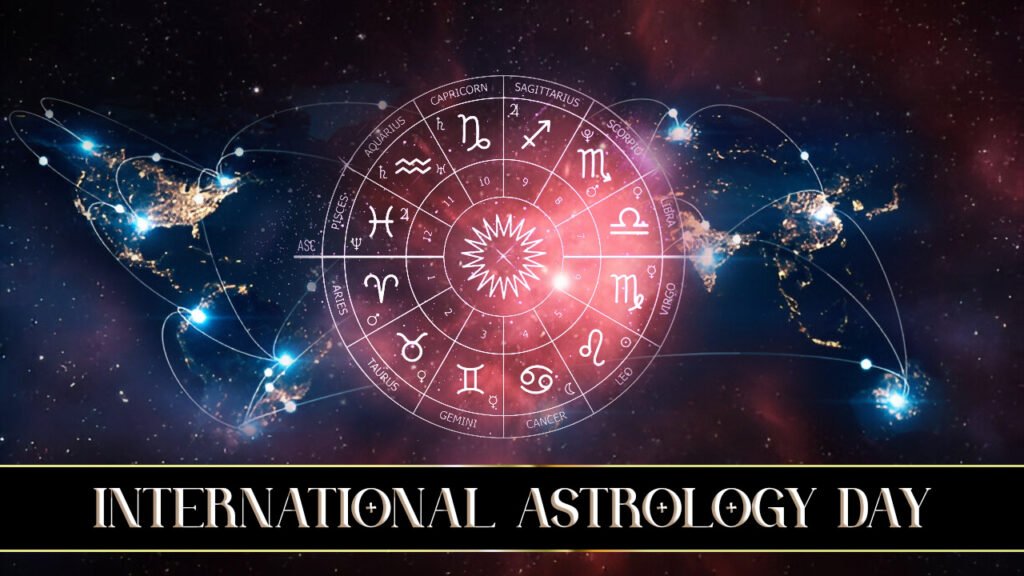Introduction to International Astrology Day
Astrology has fascinated humanity for millennia, serving as a bridge between the cosmos and our personal lives. To celebrate this ancient practice, International Astrology Day was established—a special occasion that brings together astrology enthusiasts, practitioners, and curious minds from around the globe. Observed annually on the spring equinox (around March 20 or 21), this day honors the rich history, cultural significance, and evolving role of astrology in modern life.
While many people are familiar with horoscopes and zodiac signs, there’s much more to International Astrology Day than meets the eye. Here are some surprising facts about this celestial celebration that you might not know!
1. It Aligns with the Spring Equinox
International Astrology Day is celebrated on the spring equinox , a time when day and night are nearly equal in length. This astronomical event marks the beginning of Aries season in the tropical zodiac, symbolizing new beginnings, fresh starts, and the awakening of energy after winter. The choice of this date reflects astrology’s deep connection to natural cycles and cosmic rhythms.
2. It Was First Celebrated in 1973
International Astrology Day was officially established by the Association for Astrological Networking (AFAN) in 1973 . AFAN aimed to promote awareness of astrology and foster unity among astrologers worldwide. Since then, it has grown into a global phenomenon, celebrated through workshops, webinars, social media events, and community gatherings.
Fun Fact:
The first celebration coincided with a surge in public interest in astrology during the 1970s, fueled by the counterculture movement and the rise of New Age spirituality.
3. It’s Not Just for Astrologers
While International Astrology Day is a favorite among professional astrologers, it’s also designed to engage everyday people who enjoy reading their horoscopes or exploring their birth charts. Many organizations offer free resources like chart readings, online lectures, and downloadable guides to make astrology accessible to everyone.
Surprising Insight:
Even skeptics often participate in the festivities! Whether it’s out of curiosity or simply for fun, non-believers sometimes find themselves drawn to the intrigue of planetary influences.
4. It Celebrates Both Ancient Wisdom and Modern Science
Astrology dates back thousands of years, with roots in civilizations such as Babylon, Egypt, Greece, and India. On International Astrology Day, practitioners honor these traditions while also embracing contemporary advancements in astrological techniques and tools.
Did You Know?
Modern technology has revolutionized astrology! Apps, AI-powered chart calculators, and online platforms now allow users to generate detailed natal charts and forecasts instantly—something unimaginable just decades ago.
5. It Highlights the Global Reach of Astrology
Astrology transcends borders, languages, and cultures. From Western astrology to Vedic astrology, Chinese zodiac systems to indigenous star lore, each tradition offers unique insights into human behavior and universal patterns. International Astrology Day celebrates this diversity, encouraging cross-cultural exchange and understanding.
Cool Fact:
In Japan, the spring equinox is part of a week-long observance called Shunbun no Hi , which includes ancestral rituals and nature-based celebrations—a nod to astrology’s universal appeal.
6. It Encourages Self-Reflection and Growth
One of the core purposes of International Astrology Day is to inspire individuals to reflect on their lives through an astrological lens. By examining their birth charts, transits, and planetary alignments, participants gain deeper insight into their strengths, challenges, and potential paths forward.
How to Participate:
Take time on this day to journal about your goals, review your recent achievements, or meditate on how the planets might be influencing your current circumstances.
7. It Sparks Conversations About Skepticism vs. Belief
Astrology remains a polarizing topic, with debates raging between believers and skeptics. International Astrology Day provides a platform for constructive dialogue, inviting both sides to explore the subject with open minds.
Interesting Debate Point:
Some scientists argue that astrology lacks empirical evidence, yet millions swear by its accuracy. Could there be room for both perspectives? Perhaps the answer lies in viewing astrology as a symbolic language rather than a predictive science.
8. It Inspires Creative Expression
Artists, writers, musicians, and creators often draw inspiration from astrology. On International Astrology Day, many share their work—whether it’s poetry inspired by zodiac archetypes, paintings depicting constellations, or music composed based on planetary harmonies.
Fun Activity Idea:
Try creating something artistic that reflects your sun sign or rising sign. For example, a fiery Leo might paint bold, vibrant colors, while a dreamy Pisces could write a whimsical short story.
9. It Promotes Community and Connection
Astrology fosters a sense of belonging by helping people understand themselves and others better. On International Astrology Day, communities come together—both virtually and in person—to discuss shared interests, swap stories, and build meaningful connections.
Heartwarming Example:
Local astrology clubs often host meetups where attendees bring snacks, share readings, and bond over their mutual love for the stars.
10. It Has Its Own Symbolic Rituals
Many astrologers perform rituals on International Astrology Day to honor the planets and seek guidance for the year ahead. Common practices include lighting candles for specific zodiac signs, meditating under the stars, or setting intentions aligned with the spring equinox.
Ritual Tip:
Write down a wish or intention for the upcoming astrological year (which begins at the spring equinox). Place it under a crystal or near a window to “charge” under the light of the full moon.
For interesting astrology-related videos, subscribe to us on YouTube
FAQs About International Astrology Day
1. When is International Astrology Day celebrated?
It is observed annually on the spring equinox , which usually falls on March 20 or 21.
2. Who can participate in International Astrology Day?
Anyone can join in the festivities! Whether you’re a seasoned astrologer, a casual horoscope reader, or simply curious about astrology, there’s something for everyone.
3. How do people celebrate this day?
Activities range from attending workshops and webinars to hosting stargazing parties, performing rituals, or sharing astrology-related content on social media.
4. Why is the spring equinox significant for astrology?
The spring equinox marks the start of Aries season, symbolizing new beginnings and renewed energy—a perfect time to reflect on personal growth and set intentions.
5. Is International Astrology Day only for Western astrology?
No, it celebrates all forms of astrology, including Vedic, Chinese, Mayan, and other cultural traditions.
6. Can I learn astrology if I’m a beginner?
Absolutely! International Astrology Day is a great opportunity to dive into astrology basics. Many organizations offer free resources and introductory courses to help newcomers get started.
Final Thoughts: Embracing the Magic of the Cosmos
International Astrology Day reminds us of the profound connection between humanity and the universe. Whether you view astrology as a spiritual practice, a psychological tool, or simply a fun hobby, this day invites you to pause, look up at the stars, and consider your place within the grand tapestry of existence. So, whether you’re casting a chart, gazing at the night sky, or simply enjoying the changing seasons, take a moment to celebrate the timeless wisdom of astrology—and let it guide you toward greater self-awareness and wonder.

